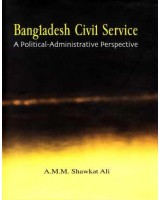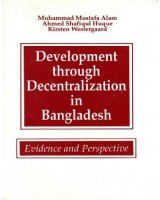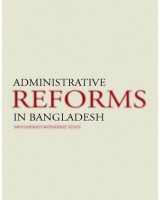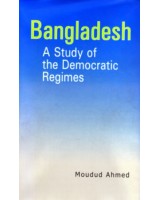Shopping Cart
0 item(s) - U$0.00- Agriculture +
- Anthropology
- Archaeology
- Arts & Photography +
- Bangladesh Studies
- Biographies & Memoirs +
- Business, Economics & Investing +
- Children's Books
- Development Studies
- Education & Reference +
- History +
- Home, Garden & Hobbies +
- Journals & Reports
- Law +
- Literature & Fiction +
- Population and Housing Census
- Reference Book +
- Religion & Spirituality +
- Sciences & Technology +
- Social Sciences +
- Travel +
- Women's Studies
- Statistics
Civil Service Management in Bangladesh An Agenda for Policy Refrom
Authors: A M M Shawkat Ali (Author)
Edition: 1st edition
ISBN: 9840517848
Page: 231
Format: Hardcover
Language: English
Publication Date: January 1, 2007
Product Code: 9003460
Availability: In Stock
Condition: New Book, Never used
Qty:
The study is a pioneering attempt on civil service management in Bangladesh. The study is a unique blend of practitioner's knowledge and academic insight of the operation of the administrative machinery of Bangladesh. As many as ten key aspects of management have been identified, analysed and evaluated in depth with suggested actions for the future. These areas are both conventional and new. The conventional areas include recruitment, training, pay, pension, promotion etc. The new areas are need assessment to determine size of civil service, disposal of business and openness versus secrecy in government. The strengths and weaknesses of the prevailing management framework are analysed and evaluated to drive home the point that there is need to strengthen the existing salutary aspects before debunking the prevailing system as outmoded and leaping into new areas of reform. An important point that emerges is the institutional failure of the political machinery to strengthen civil service management. The issue requires further investigation and research in light of bureaucratic resistance to reform measures. The author has suggested some important areas of reform in light of constitutional provisions on civil service, which demand attention of the policy makers and others having an interest in the subject.
Write a review
Your Name:Your Review: Note: HTML is not translated!
Rating: Bad Good
Enter the code in the box below:
Do you have any questions about Civil Service Management in Bangladesh An Agenda for Policy Refrom?
 Your Name:
Your Name: Your Email:
Your Email: Your Question:
Your Question:
Enter the code in the box below:

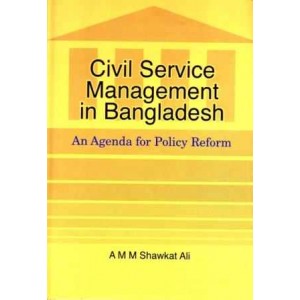
 (
(